-
 Bitcoin
Bitcoin $112400
-1.07% -
 Ethereum
Ethereum $3409
-3.27% -
 XRP
XRP $2.784
-6.60% -
 Tether USDt
Tether USDt $0.9997
-0.03% -
 BNB
BNB $739.3
-2.09% -
 Solana
Solana $158.0
-2.90% -
 USDC
USDC $0.9998
-0.02% -
 TRON
TRON $0.3213
-0.94% -
 Dogecoin
Dogecoin $0.1929
-5.01% -
 Cardano
Cardano $0.6974
-2.82% -
 Hyperliquid
Hyperliquid $36.69
-2.31% -
 Sui
Sui $3.327
-4.80% -
 Stellar
Stellar $0.3672
-5.18% -
 Chainlink
Chainlink $15.65
-3.07% -
 Bitcoin Cash
Bitcoin Cash $525.0
-1.68% -
 Hedera
Hedera $0.2291
-6.00% -
 Avalanche
Avalanche $20.91
-2.96% -
 Ethena USDe
Ethena USDe $1.000
0.00% -
 Toncoin
Toncoin $3.520
-1.12% -
 UNUS SED LEO
UNUS SED LEO $8.968
0.14% -
 Litecoin
Litecoin $105.7
0.26% -
 Shiba Inu
Shiba Inu $0.00001181
-1.79% -
 Polkadot
Polkadot $3.492
-2.08% -
 Uniswap
Uniswap $8.800
-3.10% -
 Dai
Dai $0.9999
-0.01% -
 Monero
Monero $289.9
-3.17% -
 Bitget Token
Bitget Token $4.243
-1.27% -
 Pepe
Pepe $0.00001006
-3.67% -
 Cronos
Cronos $0.1248
-5.68% -
 Aave
Aave $249.7
-2.50%
what's ethereum etf
Ethereum ETFs offer convenience and regulatory oversight, allowing investors to access ETH without direct cryptocurrency handling, but warrant consideration of potential liquidity risks and price volatility of the cryptocurrency market.
Oct 10, 2024 at 12:17 am
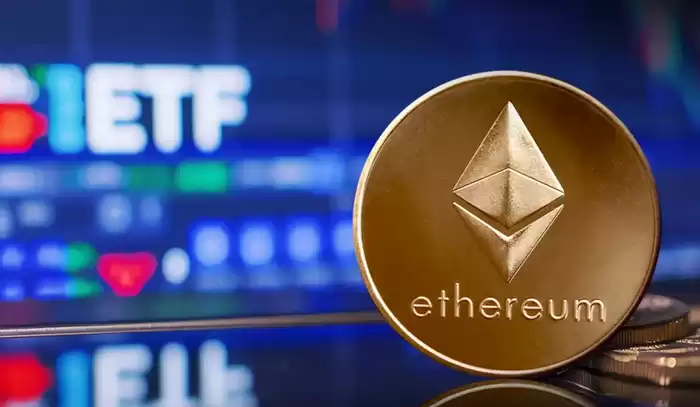
Understanding Ethereum ETFs: A Comprehensive Guide
1. What is an Ethereum ETF?
An Ethereum ETF (Exchange-Traded Fund) is an investment vehicle that tracks the performance of Ethereum (ETH), the second-largest cryptocurrency by market capitalization. ETFs allow investors to gain exposure to ETH without having to directly purchase or hold the cryptocurrency themselves.
2. How does an Ethereum ETF work?
Ethereum ETFs are typically backed by a basket of physical ETH held by a custodian bank. Investors can buy and sell shares of the ETF on traditional stock exchanges, just like stocks. The price of the ETF fluctuates in line with the underlying value of ETH.
3. Benefits of Ethereum ETFs:
- Regulatory compliance: ETFs are regulated by financial authorities, providing investors with a measure of transparency and protection.
- Diversification: Ethereum ETFs allow investors to diversify their portfolios by including exposure to a cryptocurrency.
- Lower transaction costs: Trading Ethereum ETFs can be more cost-effective than buying and selling ETH directly.
- Convenience: ETFs provide a convenient way to invest in ETH without the hassle of managing private keys and cryptocurrency wallets.
4. Risks of Ethereum ETFs:
- Liquidity risk: Ethereum ETFs are still a relatively new investment product, and liquidity may be limited, especially during market downturns.
- Price volatility: The price of ETH is highly volatile, and the value of an Ethereum ETF can fluctuate significantly.
- Custodial risk: Investors need to trust the custodian bank holding the underlying ETH, as they have control of the assets.
- Regulatory changes: The regulatory landscape for cryptocurrencies and ETFs is evolving, and future regulations could impact the availability and performance of Ethereum ETFs.
5. Top Ethereum ETFs:
- Purpose Ether ETF (ETHH): Listed on the Toronto Stock Exchange, ETHH tracks the performance of ETH.
- Grayscale Ethereum Trust (ETHE): A privately held trust that offers a way to invest in ETH without purchasing the cryptocurrency directly.
- Amplify Transformational Data Sharing ETF (BLOK): An actively managed ETF that allocates a portion of its portfolio to Ethereum.
Conclusion:
Ethereum ETFs provide a convenient and regulated way for investors to gain exposure to ETH. However, it's important to understand the potential benefits and risks before investing. As the cryptocurrency market continues to evolve, it remains to be seen whether Ethereum ETFs will become a mainstream investment option for the masses.
Disclaimer:info@kdj.com
The information provided is not trading advice. kdj.com does not assume any responsibility for any investments made based on the information provided in this article. Cryptocurrencies are highly volatile and it is highly recommended that you invest with caution after thorough research!
If you believe that the content used on this website infringes your copyright, please contact us immediately (info@kdj.com) and we will delete it promptly.
- Ruvi AI: The AI Token on Cardano Set to Dominate After CMC Listing
- 2025-08-03 04:50:12
- Bitcoin, MicroStrategy, and Institutional Confidence: A Bullish Trifecta?
- 2025-08-03 04:30:12
- Ruvi AI Token: Price Hike Imminent After Presale Milestone?
- 2025-08-03 04:30:12
- Ruvi AI: The Millionaire Maker with a Price Spike on the Horizon?
- 2025-08-03 02:50:12
- DOGE, Utility Coins, and Smart Money: A New Era for Crypto Investing?
- 2025-08-03 02:50:12
- Punisher Coin: Is This Meme Coin the Crypto Investment with 100x ROI Potential?
- 2025-08-03 03:30:12
Related knowledge
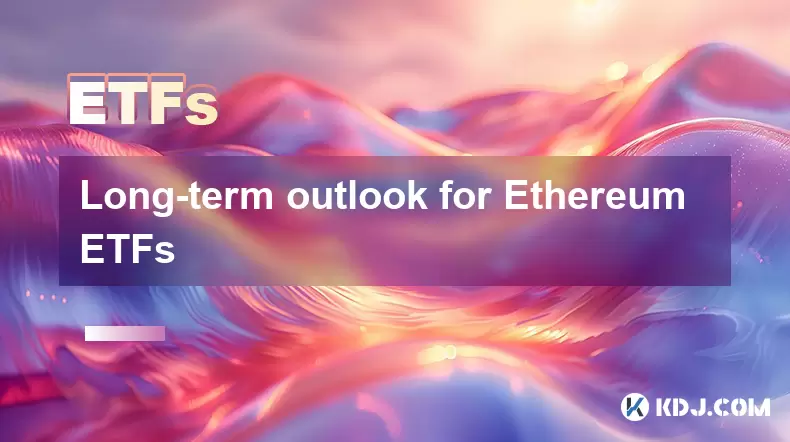
Long-term outlook for Ethereum ETFs
Jul 22,2025 at 06:42am
What Exactly Is an Ethereum ETF?An Ethereum Exchange-Traded Fund (ETF) is a financial product that tracks the price of Ethereum (ETH) and is traded on...
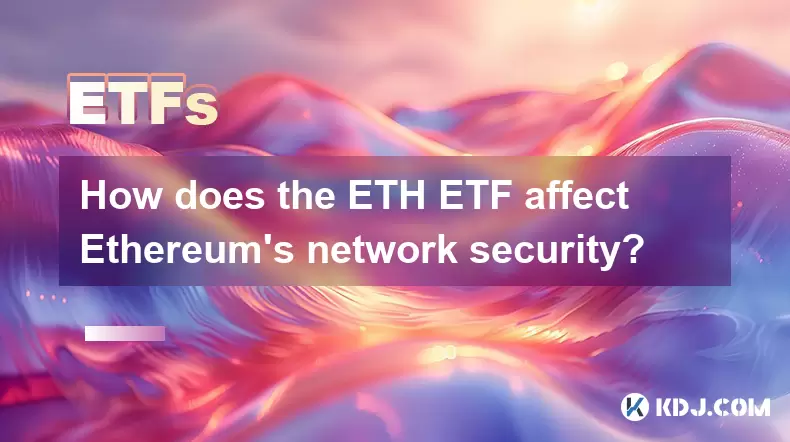
How does the ETH ETF affect Ethereum's network security?
Jul 17,2025 at 01:29pm
Understanding the ETH ETF ConceptAn Ethereum Exchange-Traded Fund (ETH ETF) is a financial product that allows investors to gain exposure to Ethereum ...
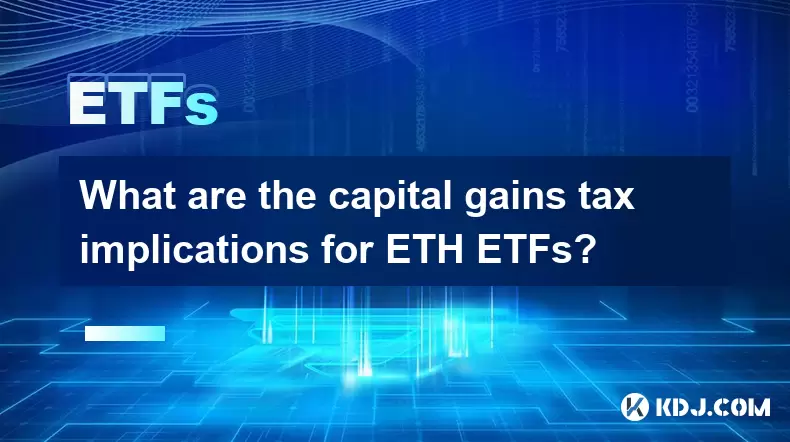
What are the capital gains tax implications for ETH ETFs?
Jul 18,2025 at 08:00am
Understanding Capital Gains Tax in Cryptocurrency InvestmentsCapital gains tax is a tax imposed on the profit realized from the sale of an asset that ...
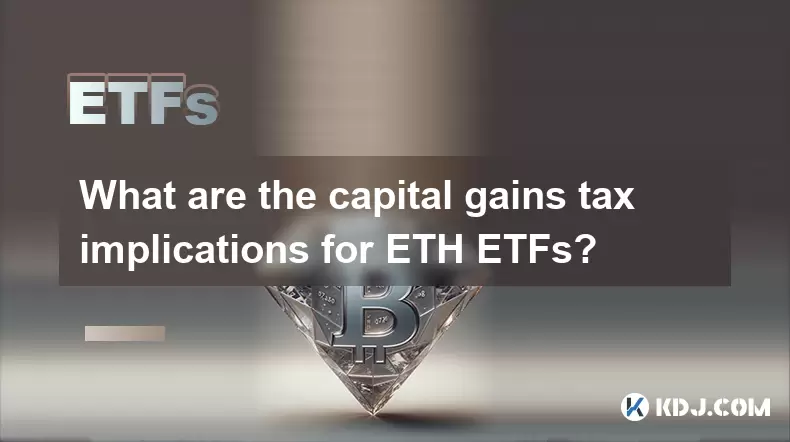
What are the capital gains tax implications for ETH ETFs?
Jul 21,2025 at 11:14am
Understanding ETH ETFs and Their TaxationAn Ethereum Exchange-Traded Fund (ETH ETF) allows investors to gain exposure to Ethereum without directly own...
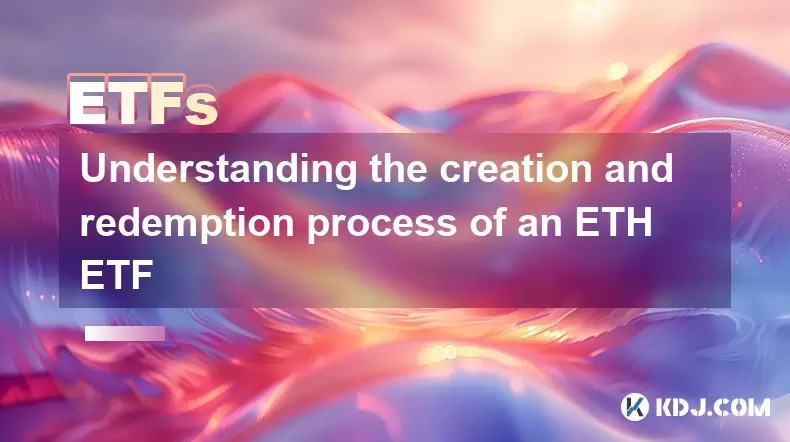
Understanding the creation and redemption process of an ETH ETF
Jul 19,2025 at 07:36am
What is an ETH ETF?An ETH ETF (Ethereum Exchange-Traded Fund) is a financial product designed to track the price of Ethereum without requiring investo...

How to analyze which ETH ETF is the best choice
Jul 19,2025 at 05:01pm
Understanding ETH ETFs and Their RelevanceEthereum Exchange-Traded Funds (ETFs) have emerged as a popular investment vehicle for those seeking exposur...

Long-term outlook for Ethereum ETFs
Jul 22,2025 at 06:42am
What Exactly Is an Ethereum ETF?An Ethereum Exchange-Traded Fund (ETF) is a financial product that tracks the price of Ethereum (ETH) and is traded on...

How does the ETH ETF affect Ethereum's network security?
Jul 17,2025 at 01:29pm
Understanding the ETH ETF ConceptAn Ethereum Exchange-Traded Fund (ETH ETF) is a financial product that allows investors to gain exposure to Ethereum ...

What are the capital gains tax implications for ETH ETFs?
Jul 18,2025 at 08:00am
Understanding Capital Gains Tax in Cryptocurrency InvestmentsCapital gains tax is a tax imposed on the profit realized from the sale of an asset that ...

What are the capital gains tax implications for ETH ETFs?
Jul 21,2025 at 11:14am
Understanding ETH ETFs and Their TaxationAn Ethereum Exchange-Traded Fund (ETH ETF) allows investors to gain exposure to Ethereum without directly own...

Understanding the creation and redemption process of an ETH ETF
Jul 19,2025 at 07:36am
What is an ETH ETF?An ETH ETF (Ethereum Exchange-Traded Fund) is a financial product designed to track the price of Ethereum without requiring investo...

How to analyze which ETH ETF is the best choice
Jul 19,2025 at 05:01pm
Understanding ETH ETFs and Their RelevanceEthereum Exchange-Traded Funds (ETFs) have emerged as a popular investment vehicle for those seeking exposur...
See all articles

























































































